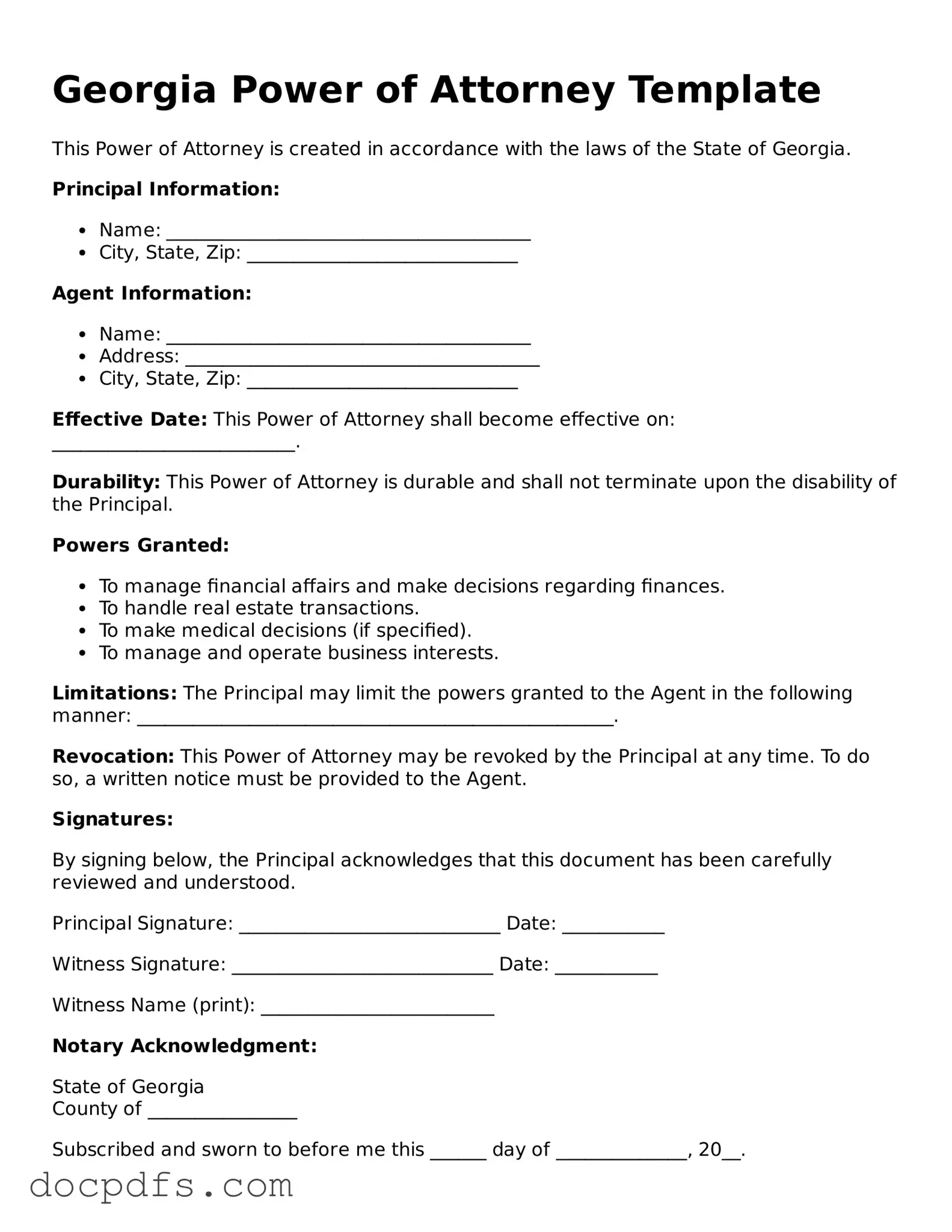What is a Power of Attorney in Georgia?
A Power of Attorney (POA) in Georgia is a legal document that allows one person, known as the principal, to authorize another person, called the agent or attorney-in-fact, to make decisions on their behalf. This can include financial matters, medical decisions, or other specific tasks. The principal must be mentally competent when signing the document, and it can be tailored to fit individual needs.
What types of Power of Attorney are available in Georgia?
In Georgia, there are several types of Power of Attorney, including:
-
General Power of Attorney:
Grants broad powers to the agent to act on behalf of the principal in various matters.
-
Limited Power of Attorney:
Restricts the agent’s authority to specific tasks or situations, such as handling a real estate transaction.
-
Durable Power of Attorney:
Remains effective even if the principal becomes incapacitated. This is crucial for long-term planning.
-
Healthcare Power of Attorney:
Specifically allows the agent to make medical decisions for the principal if they are unable to do so.
How do I create a Power of Attorney in Georgia?
Creating a Power of Attorney in Georgia involves several steps:
-
Determine the type of POA you need based on your situation.
-
Obtain a Power of Attorney form, which can often be found online or through legal offices.
-
Complete the form by filling in the necessary details, including the names of the principal and agent, and the powers being granted.
-
Sign the document in the presence of a notary public. In some cases, witnesses may also be required.
-
Distribute copies of the signed document to relevant parties, including the agent and any institutions that may need it.
Does a Power of Attorney need to be notarized in Georgia?
Yes, in Georgia, a Power of Attorney must be signed in the presence of a notary public to be legally valid. This notarization process helps to verify the identity of the principal and ensures that the document is executed properly. If the POA is intended to be durable, it is especially important to follow these formalities to avoid any potential disputes in the future.
Can I revoke a Power of Attorney in Georgia?
Yes, a Power of Attorney can be revoked in Georgia at any time, as long as the principal is mentally competent. To revoke a POA, the principal should create a written revocation document and notify the agent and any relevant third parties that the authority has been revoked. It’s also advisable to destroy any copies of the original POA to prevent confusion.
What happens if the principal becomes incapacitated?
If the principal becomes incapacitated, the authority granted in a Durable Power of Attorney remains effective, allowing the agent to make decisions on behalf of the principal. However, if the POA is not durable, it will terminate upon the principal's incapacitation. This highlights the importance of choosing the right type of POA based on future needs and ensuring that the document is crafted carefully.

